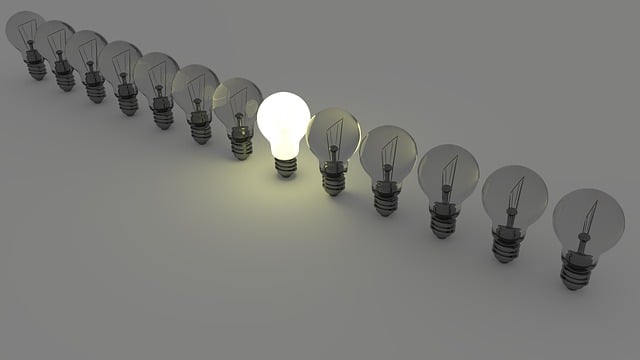Sometimes dreams will give you vague pictures and a rough outline that something’s going on.
What exactly is going on?
No idea. Something.
You wake up. Minutes later, you have an idea. You come to a new understanding. Pieces snap together.
Not a dream
Technically, that’s not a dream. You’re in none of the stages of the sleep cycle. You’re not asleep.
Yet this “new understanding,” this aha moment, has to be related to sleep and dreaming because of the actions surrounding it. You were asleep. You’re up, awake briefly, and then you return to sleep. Something got connected to something else.
Dreams are implicated in consolidating information. Perhaps sometimes the brain is still consolidating memories when you’re briefly wake.
Either way, increasing your awareness of dreams also increases your awareness of these moments.
For me, these aha moments happen occasionally. I’ve developed the habit of writing dreams down, making quick notes in the middle of the night about what I was dreaming. When this kind of episode happens, I have no idea as to what I was dreaming. Yet, a connection about something, an experience that happened, suddenly occurs.
Researchers have identified other characteristics of aha moments.
- The aha moment is sudden.
- The solution to a problem comes to you easily.
- It’s positive, always a good thing.
- You’re convinced that it’s the right solution
Not remembering something you forgot
Suddenly remembering something you forgot isn’t an aha moment, though it has some of the characteristics. It’s usually good you remembered and the remembering happens suddenly.
Example #1: I should have taken the turkey out of the freezer to defrost it! (Not an aha moment)
Example #2: Farmer Jones said he was going to raise more turkeys when I saw him last year. Maybe he would know where I could get one! (Making a connection between your need for a turkey and something Farmer Jones said last year).
With an aha moment, you’re not necessarily stuck on a problem
Sometimes aha moments are thought of as occurring when you’re stuck on a problem. This is not always true. You can have an aha moment about a problem you weren’t even aware of. This happens when you’ve got more than one problem. Your conscious mind is occupied during your waking hours. Then, when you’re sleeping, your subconscious says: “What about this other thing?”
These aha connections can be valuable, even vital. It could pertain to something you need to do; a realization about someone you know; a way through a challenge; or an understanding of how something works. Anything.
There are no guarantees with ah-ha moments, whether trivial or important. It might even be a random process.
How would you even begin to study something like this?
For me, studying them would be difficult because they’re infrequent. For someone else, they could be much more common.
According to the article in Wikipedia about “the Eureka effect” (another name for this phenomenon), different tests have been designed, like the Nine Dot Problem. Solutions rely on connecting to other invisible dots, so they rely on altering your understanding of the rules of the puzzle. They test “thinking outside of the box.”
Researchers have also used verbal riddles:
Q: A man was washing windows on a high-rise building when he fell from the 40-foot ladder to the concrete path below. Amazingly, he was unhurt. Why?
A: He slipped from the bottom rung!”
This riddle relies on deceptive wording. There’s absolutely nothing amazing about being uninjured after falling one rung on a ladder. If you weren’t told it was amazing, you’d probably be more likely to come up with the right answer if you never had seen the puzzle before.
How to have more aha moments
The phenomenon of these moments isn’t well studied. They’re too random. Some involve making impressive connections between disparate pieces of information.
All that said, it stands to reason that relaxing after you wake up and letting your mind wander could lead to more of these moments. Encouraging your mind to make more of these connections could lead to creativity and that could be profitable.
Also on the blog:
